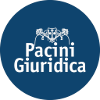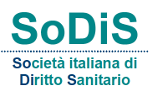Nel contesto dell’epidemia da Covid-19 che ha visto l’Italia, ed in particolare una regione, colpita per prima in Europa, con un drammatico bilancio clinico e pesanti ripercussioni sociali ed economiche, questo intervento si pone l’obiettivo di identificare le responsabilità e il ruolo dell’Igiene e della Sanità Pubblica per un’efficace gestione post-emergenziale. Vengono definiti gli ambiti di competenza della disciplina e le sue caratteristiche distintive, legate ad un concetto di salute che si sposta dal singolo alla collettività e dalla cura alla prevenzione. In assenza di terapie efficaci gli strumenti in possesso per il controllo dell’epidemia sono legati alla prevenzione della trasmissione attraverso: comportamenti individuali responsabili supportati da un’adeguata educazione sanitaria e comunicazione, atti coercitivi quali quarantene ed isolamenti fiduciari, efficienti sistemi di sorveglianza epidemiologica e tracciamento dei contatti, solida organizzazione dei servizi socio-sanitari territoriali. La gestione post-emergenziale di Covid-19 richiede l’impegno dei rappresentanti della nostra disciplina a diversi livelli, nelle politiche, nei servizi, nella ricerca, nella formazione e nella comunicazione. L’auspicio è che l’Igiene italiano possa essere all’altezza della centralità del ruolo che ricopre nel Servizio Sanitario Nazionale, nell’Accademia e nella società tutta.
Italy, and some Northern Regions in particular, has been heavily hit by the coronavirus disease 2019 (Covid-19) outbreak, with massive clinical, social and economic effects. Here we discuss the role and responsibilities of Public Health – namely, the discipline of “Hygiene and Preventive Medicine”, as it is called in Italy – in the response to Covid-19, within and outside the health sector. More in details, we aim at: i) recalling the history of our discipline in the establishment of the Italian National Health Service (INHS), ii) outlining its areas of action within the INHS and the Academia, and iii) identifying its founding principles and characteristics which shifts the concept of health from single individuals to the population, and from cure to prevention. Ultimately, we reflect on how all this can constructively contribute to Covid-19 response in the context of health services delivery, research, training and education, communication and informing and, importantly, informing health policies. In the absence of effective therapies, weapons to fight Covid-19 rely on transmission prevention, through: responsible individual behaviors, social distancing, quarantine, containment and mitigation measures, including surveillance and contact tracing, and on solid communitylevel health services management. The discipline of Hygiene in Italy has a unique opportunity to lead Covid-19 post-emergency and, more in general, to strengthen its mission, role and vision in a new era for healthcare and for our National Health Service, creating a strong new public health and making population health and wellbeing a true value for society.


